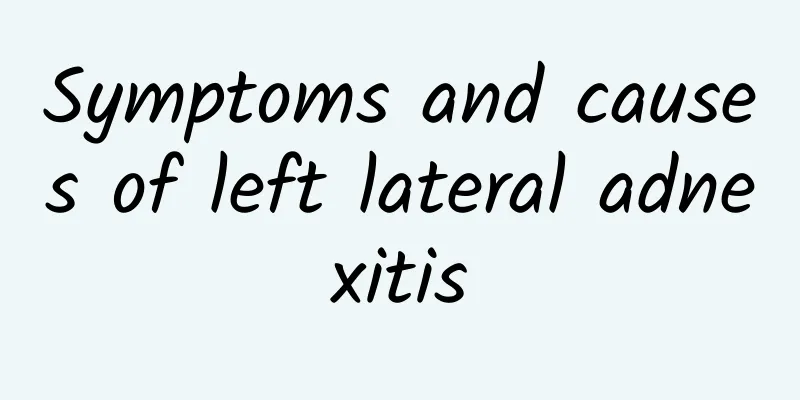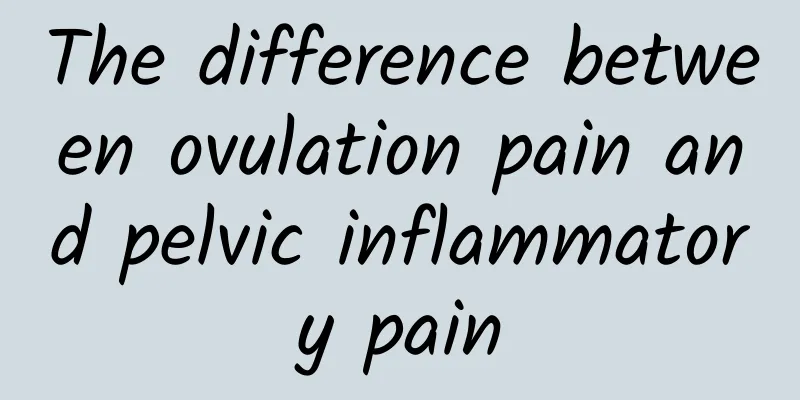Treatment methods for irregular menstruation in women

|
Irregular menstruation is a common gynecological disease, which manifests as abnormal menstrual cycle or bleeding volume, or abdominal pain and systemic symptoms before and during menstruation. The cause may be organic lesions or dysfunctions. Blood diseases, hypertension, liver diseases, endocrine diseases, miscarriage, ectopic pregnancy, hydatidiform mole, reproductive tract infection, tumors, etc. can all cause irregular menstruation. The nursing methods for irregular menstruation are as follows: Life should be regular Staying up late, overwork, and irregular life can all lead to irregular menstruation. Therefore, try to avoid this, keep a happy spirit, and avoid mental stimulation and mood swings. Do a good job of hygiene Pay attention to hygiene and prevent infection. Pay attention to the hygiene of the external genitalia. Do not have sexual intercourse during menstruation. Keep warm and avoid cold stimulation. Avoid overwork. Underwear should be soft, cotton, well ventilated and breathable. Wash and change frequently, and dry the changed underwear in the sun. Take proper care of your diet Eat more iron-containing and nourishing foods to supplement enough iron to avoid iron deficiency anemia. Eat more nourishing foods such as black-bone chicken, mutton, fish roe, shrimp, prawns, pig and sheep kidneys, mussels, black beans, sea cucumbers, walnuts, etc. Those with heavy menstrual bleeding should avoid eating brown sugar. It is not advisable to eat raw, cold, sour and spicy foods. Drink more boiled water to keep the bowels open. Those with hot blood should eat more fresh fruits and vegetables before menstruation, and avoid eating onions, garlic, leeks, ginger and other things that stimulate fire. People with qi and blood deficiency must increase nutrition, such as milk and eggs, and avoid eating raw and cold fruits. |
<<: Patients with vulvar leukoplakia should pay attention to vulvar cleanliness and balanced diet
>>: Menopausal women are at risk of ectopic pregnancy if they do not pay attention to contraception
Recommend
How to prevent chronic adnexitis
Chronic adnexitis is a common disease among women...
Can I get pregnant if I have uterine prolapse?
Uterine prolapse is a common disease among women,...
Lose weight easily with 5 good habits before going to bed
Many weight loss methods are closely related to s...
Causes of bacterial vaginosis
The most common disease in the vagina is vaginiti...
How to solve the three major problems of "little sister" pain, smell and itching? Nutritionist: Eat smart to maintain your private parts and enjoy sex
Women's private parts often have three major ...
Can patients with cervicitis have sexual life? What should patients with cervicitis pay attention to?
Many women who have given birth should know about...
What are the advantages of micro-tube painless abortion surgery?
Micro-tube painless abortion is also called endom...
To prevent pelvic inflammatory disease, women should first do a good job of 3-stage care
Pelvic inflammatory disease is one of the more st...
Nursing experience of endometrial tuberculosis
Patients with endometrial tuberculosis often see ...
What to do if the color of your period is abnormal
What should I do if the color of my period is abn...
A brief analysis of several main types of vaginitis
Vaginitis is a very common gynecological disease....
Healthy dietary fiber supplementation: fruit and vegetable juice ratio 2:1
Eating more vegetables and fruits can supplement ...
What is an ovarian cyst?
What does the encyclopedia say about ovarian cyst...
How to control appetite when losing weight? Is starch the enemy of weight loss? 9 great weight loss diet tips to get rid of your gluttony addiction
With all kinds of delicious food around, it is al...
What are the symptoms of chronic cervicitis?
We all know that cervicitis is a common gynecolog...









